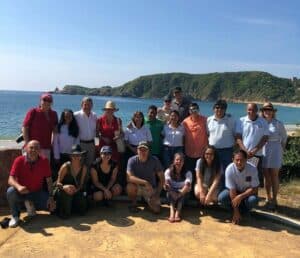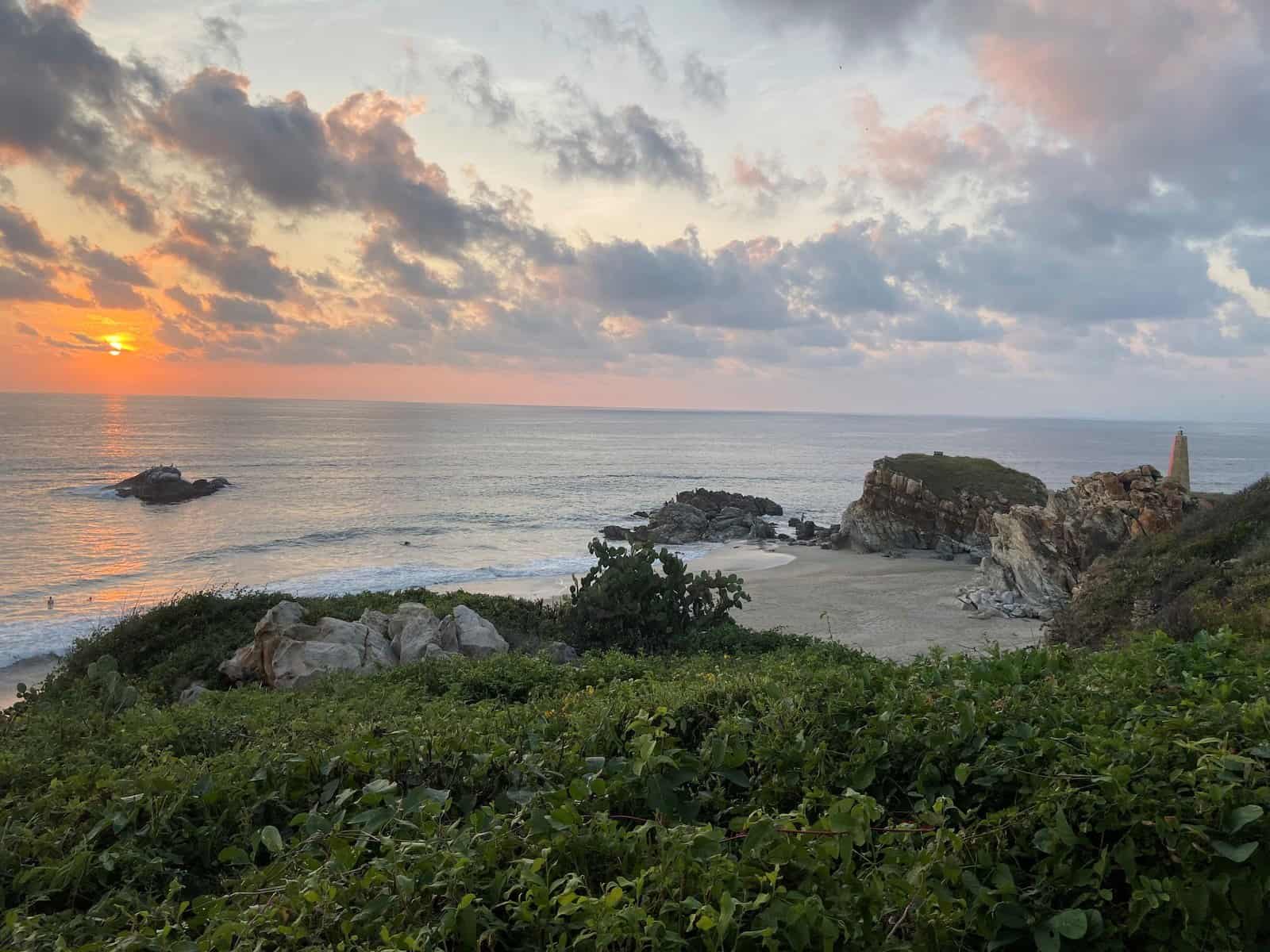“Acercamiento”: Community Engagement in Mexico
1 September 2021This past year has been a difficult one.
From the pandemic, to natural disasters, to global political and social unrest, none of us have escaped unscathed in our personal or professional lives. Adding to that is the increasing urgency to implement transformative solutions that address climate change—a task that often feels insurmountable.
When I’m feeling overwhelmed by these circumstances, I think about success stories that prove that sustainable solutions led by communities can yield benefits for people, the environment, and the economy. I found one of these inspiring stories during a trip to Oaxaca, Mexico two years ago, and I revisit it often as a source of hope.
The sun was setting on the Pacific coast as I gathered with colleagues on a beach in Mazunte—a small coastal town in Oaxaca, Mexico. Hues of yellow, orange, and purple colored the sky, as waves crashed into the rocks. This was no movie set or backdrop for a cocktail party—we were there to witness 200 baby turtles taking their first steps into the ocean.
Years ago, this sight would have been unlikely: Oaxaca was previously known as the epicenter of sea turtle hunting in Mexico. After the government banned turtle meat and eggs in 1990, a series of collaborative efforts emerged to provide alternative livelihoods for these communities.
Thirty years later, the success of these efforts in improving both conservation and economic development is what drew me to Oaxaca. These win-wins inspire Meridian’s work on building a social movement to sustainably manage Mexico’s oceans and coasts, where we gather leading experts from civil society, academia, philanthropy, and the private sector to advance integrated ocean policy.

Since the beginning, a core principle of our work in Mexico has been “acercamiento local,” which loosely translates to “getting close to the local.” This principle—and its implementation—are driven by the perspectives and voices of local communities. It goes beyond mere engagement: it is about openness, really listening, building local capacity, and (when we can!) literally getting close to people to design a shared approach grounded in local challenges, needs, and opportunities.
As part of this “acercamiento” in Oaxaca, we’ve listened to inspiring stories of resilience, sustainability, and empowerment. We heard from staff members of the Mexican National Turtle Center about how the Center became a catalyst for the local economy. From the outset, there was debate over whether the Center should be in the tourist-heavy areas of the region to attract visitors, such as the Puerto Escondido (a world-famous surfing destination). Ultimately, the government decided the Center should support and boost the local communities most affected by the ban, and as such, it was built in 1991 in Mazunte.
“We wanted to serve the community and its people and show them there are economic opportunities in the protection of our environment,” said Mireya Viadiu Ilarranza, Coordinator of Diffusion and Environmental Education at the Center. Now, the Center is an aquarium and research center dedicated to turtles that counts on the active participation of the local communities to:
- Promote ecotourism (including creating the first ecotourism cooperative of the region) and educate more than 80,000 annual visitors (pre-pandemic numbers)
- Certify several areas for conservation and train local fishermen to reduce bycatch of turtles
- Monitor sea and freshwater turtle nests and nurse stranded, sick, or hurt sea turtles
Through the Center’s educational efforts, they managed to shift an entire culture and economic system. We heard from a local fisherman turned turtle conservationist who now volunteers with the Center to monitor turtle hatcheries. When we asked him about his motivations, he responded, “It’s a responsibility that comes from within, from the heart.” Now, Mazunte—thanks to community-led conservation efforts—is known as a sanctuary for sea turtles.
Another inspiring story came from Cosméticos Naturales de Mazunte, a women-run cooperative dedicated to making high-quality, natural, and environmentally friendly cosmetics. Cosméticos Naturales de Mazunte started three decades ago with the sponsorship of The Body Shop, the Mexican federal government, and participation of 13 women. Now the cooperative counts over 40 partners and products throughout the country.
One of the founding members spoke about the challenges of establishing Cosméticos Naturales de Mazunte—specifically, how many of the women, herself included, struggled with childcare and sustaining their families while the cooperative was starting out. In the face of these challenges, the resilience of these women paid off: the cooperative is now known as the “miracle of Mazunte” and provides a source of income for several families, as well as being a model for sustainable enterprises and a popular tourist attraction.
Two years ago, I left Mexico deeply touched and inspired by these stories. But more than anything, I left energized to tackle the issues that threaten Mexico’s oceans and coasts by putting the local communities that depend on these resources at the forefront. In 2021, Meridian, with in-country partners, continues to engage local coastal communities and elevate their voices. With these voices driving conservation efforts, together we can design long-lasting and sustainable solutions that protect the environment and livelihoods. Stay tuned for more inspiring stories from the Mexican coast in the months to come!

Learn more about our work in Mexico
Champions of integrated ocean policy in Mexico are advancing a bold vision to protect the country’s vibrant marine ecosystems and ocean-dependent communities.